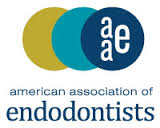You may think that your teeth are the most important thing in your mouth, and they are important, of course! Without teeth, it is embarrassing to smile, you can’t chew, and your jawbone begins to absorb (disintegrate) eventually leading to that sunken-in, aged appearance. However, without healthy gums, you would have no teeth. Your gums and underlying jawbone are what hold your pearly whites in place. So, if you don’t take care of your gums, you can lose your teeth. Anyone can develop gum disease if they do not take care of their oral health by brushing their teeth regularly, flossing, and attending regular dental checkup and cleanings, but some things can put you more at risk for developing gum disease. Are you at risk for gum disease?
How Gum Disease Develops
Plaque naturally forms on our teeth every day, all day. We brush and floss our teeth to remove it. Plaque is a mixture of saliva, harmful bacteria that exists in our mouth, leftover food debris, and acids secreted by the harmful bacteria. If it is not removed twice a day, it will cause decay, gingivitis, and eventually advanced gum disease. Gum disease is the major reason for adult tooth loss.
Risk Factors For Gum Disease
Some people have a higher risk of developing gum disease, sometimes regardless of how diligently they take care of their teeth. Some risk factors for gum disease include:
- Heredity: If gum disease runs in the family, no matter how diligent your oral hygiene, you are still at risk.
- Poor oral health habits
- Gingivitis: While gingivitis is reversible, left untreated it can develop into advanced gum disease.
- Tobacco use: Smoking especially triples your risk for gum disease.
- Age: Although anyone can develop gum disease, chronic periodontitis affects over 47 percent of adults over the age of 30 in the U.S.
- Diabetes
- Compromised immunity: Those with leukemia, HIV/AIDS or undergoing chemotherapy are at a higher risk of developing gum disease.
- Poor nutrition
- Certain medications
- Hormonal fluctuations: Such as those that occur during pregnancy and menopause
- Substance abuse
- Tooth misalignment: Provides more places for plaque and tartar to multiply.










